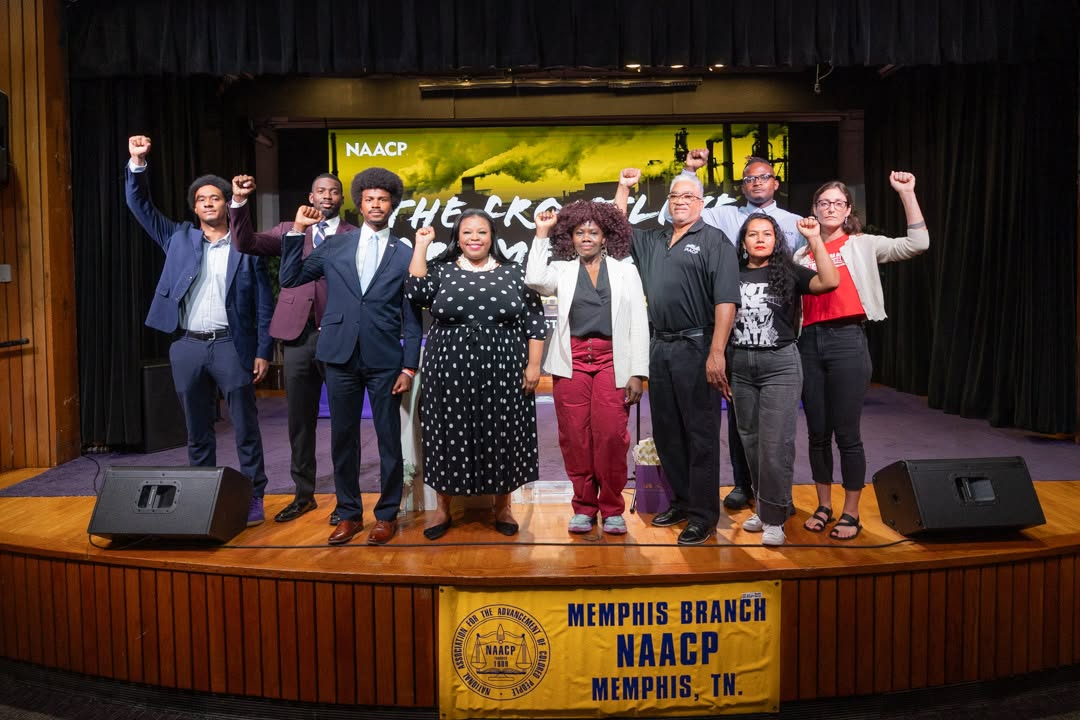As data centers continue to pop up in Black and brown communities, environmental groups are stepping in to provide a framework on how they should operate.
The National Association for the Advancement of Colored People (NAACP) along with other environmental justice groups are working to address “the rapid expansion of data centers” through collaborative guidelines, This framework will demand accountability, responsibility, and action from tech companies, they said.
Last week, the NAACP along with state Rep. Justin Pearson (D-Memphis), Alternatives for Community and Environment, Memphis Community Against Pollution, Young, Gifted, and Green, and No Desert Data Center Coalition held a conference at LeMoyne-Owen College to address the presence of data centers in minority communities — including xAI. Here, they also began to plan the framework for how they should operate.
“We’re going to hold individuals and companies and agencies accountable if they are indeed allowing for there to be more pollution that’s unregulated in communities,” Abre’ Conner, director of the center for environmental and climate justice at NAACP, said this week.
Conner said they are working to develop “guiding principles” to “set the tone” for whether or not a data center should even be built out, and what they should keep in mind. She said they plan to follow up with a community benefit template to be used as a resource.
This is not the first time the NAACP intervened in the xAI conversation. In June they sent a letter to the Shelby County Health Department and Memphis Light, Gas, and Water (MLGW) urging them to stop xAI’s operations on behalf of the citizens of Memphis.
Weeks later, the Southern Environmental Law Center (SELC) sent a letter to xAI on behalf of the NAACP notifying them of their intent to sue.
Conner said after taking these actions, they began to hear from other state branches and coalition partners about similar companies taking over in their communities.
“We can’t do environmental and climate justice work unless we recognize that it’s an inherently local issue,” Conner said. “That is the approach of how we look at this work — recognizing its important for us to have a clear understanding of the nuance that’s happening at community level and to amplify what the community wants.”
Pearson said he is not against technology, but is advocating for people of color who are disproportionately affected by these data centers. He said xAI is not the only company posing a threat to the South as Google plans to open a data center in Memphis.
“This problem didn’t just start,” Pearson said. “Tech companies are taking from the same playbook of big oil companies [and] big pharma. But who’s always pushed to the periphery? Black folk and poor folk. We have to demand things to be different.”
LaTricea Adams, founder, CEO, and president of Young, Gifted, and Green noted that the NAACP’s framework is “critical” and a “starting point — not a finish line.”
“We plan to translate these principles into tangible policy changes and legally binding community benefits agreements that prioritize the health and well-being of Black communities in Memphis and across the nation,” Adams said. “We must ensure that economic development does not come at the cost of our health and environment. Our hope is that this work will serve as a blueprint for frontline communities, and we will continue to fight until that vision is a reality.”
